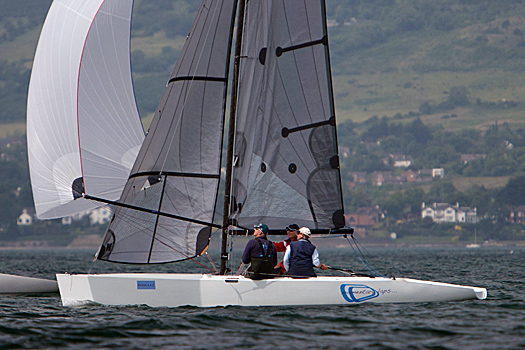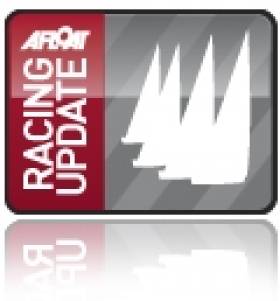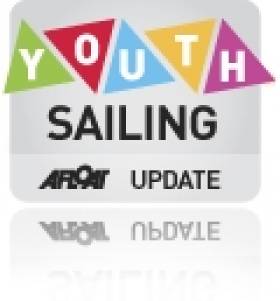Displaying items by tag: RS
SB3 and RS Elite Heading for Belfast Lough Showdown
In the RS Elite fleet defending Irish Champion John Patterson with crew David Kelso and Stephen Polly in Momentary Lapse will be up against some of the highest scoring boats from the recent National Championships at the Royal Forth Yacht Club, namely Simon Brien's Kin who finished third at that event and John McDowell's Sea Breezes who came fifth.

John Patterson, David Kelso and Stephen Polly who will be defending their Irish RS Elite title. Credit Thomas Anderson
In the SB3 Class local sailor Peter Kennedy and his crew in Ridgefence will be looking for revenge after Howth's Ben Duncan in Sharkbait beat them into second place at the Western Championships in Galway in June this year. Sharkbait is the boat in form, having won the Best Small Keelboat trophy at the recent Volvo Dun Laoghaire Regatta when she topped the 33 strong SB3 Class.
Royal Ulster Yacht Club is delighted to bring BT Infinity on board as event sponsor and with their help the event will be "bringing it all together" for two days of great racing.
"It is really a great opportunity for BT Infinity to support the major sailing championships this year at Royal Ulster", says Peter Morris, Consumer Director, BT in Northern Ireland. " Effective communication through the use of the latest technology is at the very heart of our business and as we rollout Superfast fibre optic broadband speeds, not just in Bangor, but across Northern Ireland, slow down, as in racing, just isn't a factor. The best of luck to all the crews and have a safe and successful competition".
Royal Ulster YC also acknowledges the support of North Down Borough Council and Quay Marinas, Bangor Marina in the running of this event.
RS Feva Sailing Dinghy Launches in Malta
Paul Childs, a qualified instructor from RS Sailing, visited Malta to run an initial coaching weekend, helping to set up the boats and introduce the young sailors to Feva sailing techniques. "As usual, the kids were really excited about the Fevas and they had a brilliant time on their first weekend" he reports. "Some of them are clearly already talented young sailors and I reckon we'll see some of them heading towards the top of the class pretty quickly. But the main thing is... they all had fun."
Adoption of the RS Feva class means Malta follows the pathway adopted by an ever increasing number of nations. The Feva can be used for training as well as racing, with the rotomoulded polyethylene construction system giving a durable and affordable boat. Young sailors are attracted by the performance, modern style and asymmetric spinnaker.
The 2011 RS Feva World championships, sponsored by Allen Performance Hardware and Magic Marine, take place in Holland in late July with entries expected to exceed last years 150 boat fleet from as far afield as Hong Kong.
You can find out more information about the growth of the RS Feva class in Malta by contacting Birzebbuga Sailing Club – www.birzebbugasailing.com and full details of the RS Feva can be found at www.RSsailing.com or the International Class Association at www.RSsailing.org .






























































